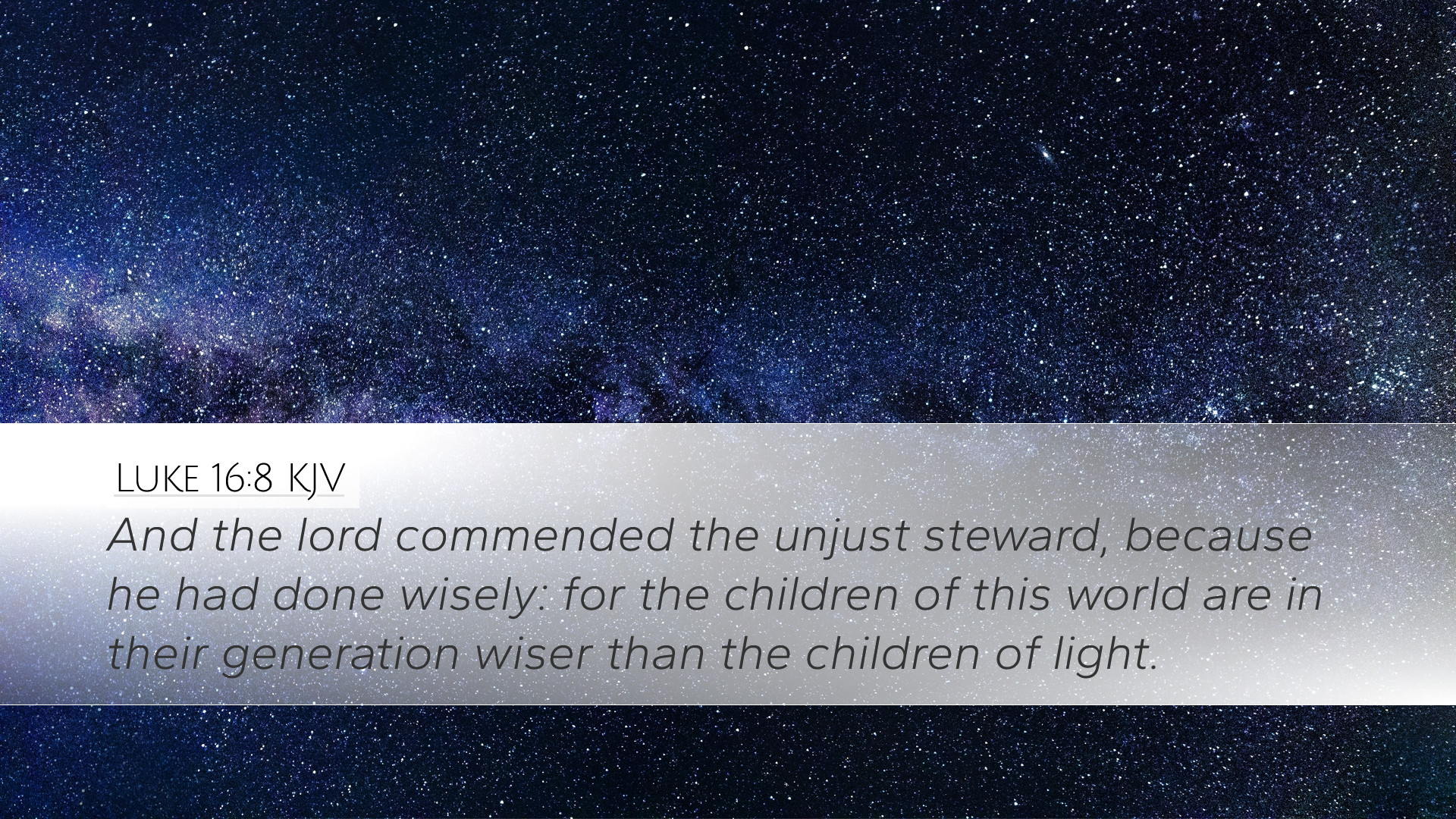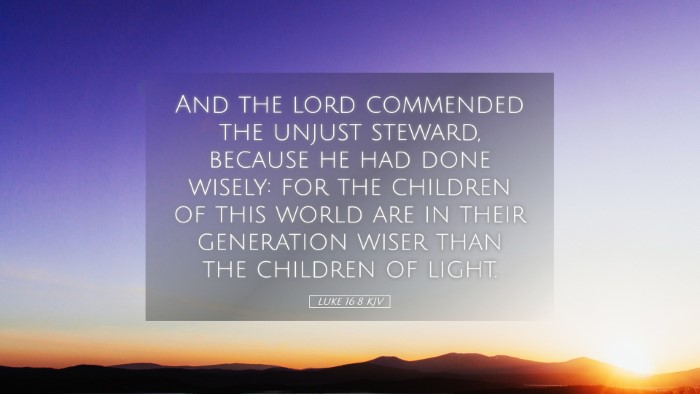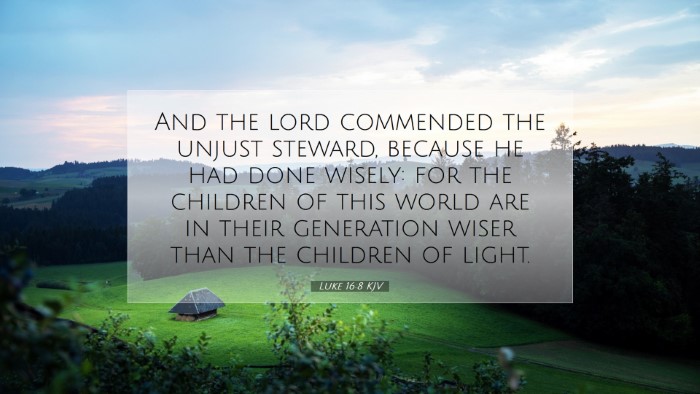Bible Commentary on Luke 16:8
Luke 16:8 states: "For the children of this world are in their generation wiser than the children of light." This verse is a part of the parable of the unjust steward, which carries with it rich theological implications and practical applications for Christians today.
Summary and Context
This verse appears within a parable told by Jesus regarding a manager who mismanaged his master's resources. Upon learning he would be dismissed, the steward acts shrewdly to secure favor with his master's debtors. In doing so, he demonstrates a cunning understanding of social dynamics, an understanding that Jesus highlights in contrast to the often naïve behavior of His followers.
Insights from Public Domain Commentaries
Matthew Henry's Commentary
Matthew Henry elaborates on this verse by emphasizing the cleverness of worldly individuals. He notes that they employ their insights and resources to achieve their goals, often outmaneuvering the children of light. Henry recognizes a stark difference in mindset and application among these two groups. While the unjust steward is worldly, using his cunning for selfish gain, he can teach a lesson on prudence and foresight to believers who should also be resourceful, though in alignment with godly principles.
Albert Barnes' Notes on the Bible
According to Albert Barnes, this verse underscores a criticism against the believers. He states that the "children of this world," referring to those who are secular and pragmatic, often outshine believers in their wisdom regarding worldly matters. Barnes further argues that while believers should be wise and shrewd in their dealings, they often lack the foresight in managing spiritual resources and the urgency in seeking after eternal treasures, which he argues should manifest in the lives of Christians.
Adam Clarke's Commentary
Adam Clarke offers a more nuanced approach by reflecting on the usage of "children of light." He suggests that this term refers not only to believers but to a larger moral and spiritual perspective that invites believers to live with discernment and engagement in the world. Clarke warns that the contrast should not lead to sinful behavior but should inspire believers to adopt a prudent and proactive stance in their spiritual lives, actively working toward the kingdom of God with the same vigor that the unjust steward exhibit.
Meaning and Application
- Understanding Shrewdness: The term "wiser" does not mean morally right; rather, it alludes to a practical sensibility. Pastors can encourage congregants to have astute understanding in distinguishing between worldly wisdom and godly wisdom.
- Resource Management: The unjust steward's actions highlight a necessity for believers to utilize their time, talent, and treasure effectively. This challenges followers to be mindful of how they manage their God-given resources in a way that honors God in their daily lives.
- Urgency in Spiritual Matters: There is a divine urgency that Jesus portrays, which calls believers into action. This can encourage theological discussions around eschatology and the believer's responsibility toward others.
- Evangelism and Witness: The story serves as a reminder of the believer’s role in as agents of change and renewal, prompting conversations about how to engage the world with the call of Christ.
Theological Reflections
In the context of Luke 16:8, several theological reflections can be drawn:
- Contrast of Kingdom Values: This verse encapsulates the struggle between the kingdom of God and the kingdom of this world, urging believers to align their values with God’s eternal kingdom.
- Call to Wisdom: The emphasis on wisdom invites exploration of the books of Proverbs and Ecclesiastes, where wisdom is deeply intertwined with the fear of the Lord.
- Paradox of the Kingdom: The inclusion of ‘the children of this world’ suggests a paradox in which God can use those who are seemingly unqualified to convey profound truths for the spiritual edification of others.
Conclusion
The instruction gleaned from Luke 16:8 offers a potent lesson for believers to engage thoughtfully and strategically in the world while remaining anchored in their faith. By synthesizing insights from esteemed commentators, one can appreciate the richness of Scripture and the ongoing relevance of these teachings in the life of the church. Pastors, students, theologians, and scholars alike are invited to reflect on this admonition and challenge themselves to embody a wisdom that not only matches but surpasses that of the world.


